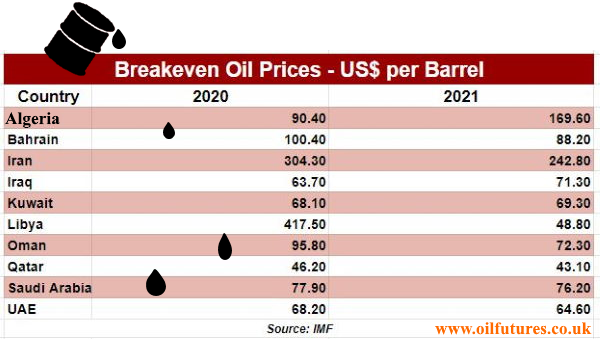Amidst the growing concerns about the short-term availability
of fossil fuels that the world is so eager to ditch unceremoniously in few
years, the focus of attention of the crude oil markets is on the OPEC+ meeting
scheduled to be held today.
Apart from those who are infectiously fond of the renewables,
the rest partly blames the crisis on crude oil producers and when they say it,
OPEC+ is usually on their radar.
Blaming it on OPEC+ alone, however, like accusing
the picturesque celestial giant, the Saturn, of polygamy, just because it has
many rings.
The current crisis does not just stem from lack of
production; it’s the accumulation of a multitude of factors which were not
taken seriously by the decision makers in time: the distribution issues, heavy
local taxes and petty regional politics to name, but a few.
In this context, the OPEC has become the convenient
scapegoat when there is a herd in a metaphorical meadow that determines the
price fluctuations of the vital commodity.
One of the things that the critics of the cartel
overlook is the evolving realities of breakeven values of each major producer;
there is no universal value even in the same region, determined by a catalogue of
factors.
On the part of OPEC, however, it has not been very successful
in presenting its side of the story, let alone fighting back.
At present, on one hand, the price of crude oil is
high for both the developed world and the developing countries, especially when
they try to make a collective recovery from the pandemic. On the other hand,
with the winter months ahead, there is no evidence to feel that the pandemic is
really behind us.
In this context, helping the global economy recover
and maintain the momentum is everyone’s interest – both producers and consumers
– because, we are not out of the woods, as yet.
The current situation in New Zealand is a case in
point: it had one of the toughest lockdown on the planet, a virtual isolation
from the rest of the world with rigid border closures and strict quarantine
measures, yet the challenge remains with no sign of perfect recovery on the
horizon.
As for the OPEC+, unlike they were on the previous occasions,
the meeting of the technical committee and that of the ministerial are going to
take place on the same day.
Analysts, meanwhile, are wondering whether the early
intervention of Jake Sullivan, the US National Security Advisor will make any
difference at today’s meeting of the OPEC+. In the past, the US chose to make requests
to increase the production of crude oil at the eleventh hour.
In addition, they wonder whether the intervention of
a senior security official of the US administration is an attempt to link the
increased production of the crude oil with the security of the de factor leader
of the OPEC+, the Kingdom of Saudi Arabia.
Recently the US withdrew the air defence system,
along with the Patriotic batteries, when the Kingdom is urgently in need of it,
when the latter has been at the receiving end of drones and missile fired up by
Houthis across the common border between Yemen and Saudi Arabia; it has become
a daily event these days.
In this context, it is likely that Saudi Arabia will
be instrumental in making its traditional, powerful ally happy by agreeing with
its demand. It, however, will be challenging for the Kingdom to take every
member of the OPEC+ on board in reaching a collective agreement.
In short, the stakes cannot be higher for Saudi
Arabia, when sandwiched between its urgent needs of security and organisational
responsibilities of a powerful cartel.








